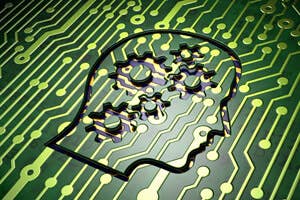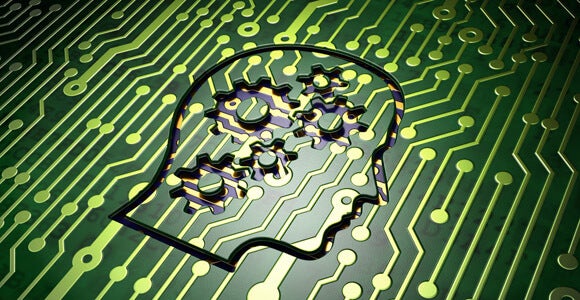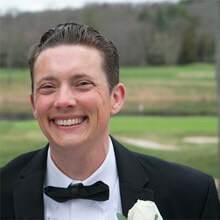Brain Training Not All It’s Cracked Up to Be, Study Finds
The scientific literature offers few answers, with some studies arguing that programs designed to build working memory provide long-lasting memory benefits and even improve overall intelligence, while others claim brain-training programs are little more than snake oil. A recent study by Georgia Institute of Technology psychological scientist Randall Engle concludes that training designed to build working memory capacity can improve cognitive function in that particular area, but that it does not translate to general intelligence.

Share
Peering into the future at extended old age, the Baby Boom generation has begun to wonder how to stay mentally sharp as long as possible. There’s a growing cottage industry in brain training and a developing body of scientific research exploring whether it can make people smarter and keep them sharper into old age.
The scientific literature is filled with contradictions, with some studies arguing that programs designed to build working memory provide long-lasting memory benefits and even improve overall intelligence, while others claim brain-training programs are little more than snake oil.
A recent study by Randall Engle and Tyler Harrison of Georgia Institute of Technology concludes that training designed to build working memory capacity can improve cognitive function in that particular area, but that it does not translate to general intelligence. The study subjects were young adults, whose cognitive function was ostensibly at its peak.
“In this study, basically what they’re saying is if you train for the 100-yard dash you’ll get good at the 100-yard dash, but not at the bench press,” David Meyer, the director of the University of Michigan's Brain, Cognition, and Action Laboratory, told Singularity Hub.
Online brain training companies "would like you to believe that, if you train on their program on the Internet, you’re going to go off and be like Einstein, whereas the Engle group is arguing that it doesn’t work that way, you don’t get that kind of far transfer. And Engle is probably right,” Meyer said.
Working memory refers to our ability to retrieve information in the short term, especially in the presence of distraction. Claims that it improves overall intelligence hinge on a correlation between working memory and what's called "fluid intelligence."
“Height and weight in human beings are also strongly correlated but few reasonable people would assume that height and weight are the same variable. If they were, gaining weight would make you taller and losing weight would make you shorter — those of us who gain and lose weight periodically can attest to the fact that that is not true,” Engle explained in a news release.
Many studies that argue that brain training can improve far-reaching cognitive abilities have fallen short of optimal scientific rigor, according to both Meyer and Harrison. For instance, some rely on participants to self-report their own improvement from training. Others test skills too similar to those in the training, which only suggests that participants get better at the particular test.
Be Part of the Future
Sign up to receive top stories about groundbreaking technologies and visionary thinkers from SingularityHub.


Even so, there is some evidence suggesting that working memory can be improved with training, including in older adults.
In a recent study, by U.C. San Francisco’s Adam Gazzaley, found that elderly people who participated in a training program focused on multitasking improved their multitasking abilities for six months afterwards. The ability to multitask, which declines with age, makes heavy use of working memory.
With improved working memory, a person could seem to have better overall mental acuity, according to Meyer.
He compared the aging brain to an obsolescent computer. If the user learns how to run only very efficient software, the machine might appear to hum right along. But if the user ran more cumbersome software on the same computer, it would visibly struggle, Meyer said.
"There’s no one way to train your brain so that you’re going to improve memory or stave off the effects of cognitive decline. There’s no silver bullet," Harrison told Singularity Hub.
The most efficient way to remain healthy and sharp into old age is to do cardiovascular exercise, both Harrison and Meyer said. The connection between physical fitness and sharp thinking into old age counts on a thicker archive of scientific study.
“The first thing I’d do is go out and get physically healthy. I would spend any additional time after that keeping fit. I’d say spend reasonable amounts of time paying attention to your check book, reading challenging materials like Scientific American and the Financial Times of London, spend time doing crosswords and Sudoku, and if following all of this then if you want to do a little Lumosity, fine,” Meyer said.
Images: Maksim Kabakou and Vladgrin via Shutterstock.com
Cameron received degrees in Comparative Literature from Princeton and Cornell universities. He has worked at Mother Jones, SFGate and IDG News Service and been published in California Lawyer and SF Weekly. He lives, predictably, in SF.
Related Articles

Researchers Break Open AI’s Black Box—and Use What They Find Inside to Control It

This Week’s Awesome Tech Stories From Around the Web (Through February 21)

What the Rise of AI Scientists May Mean for Human Research
What we’re reading


